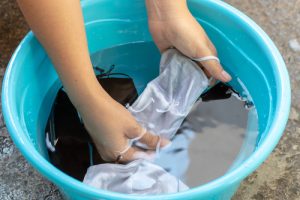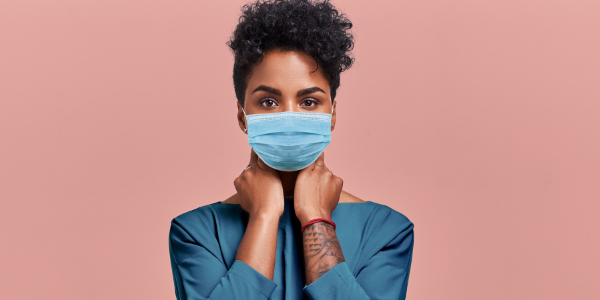Face masks provide important coronavirus protection. Proven tips for overcoming skin issues caused by face masks are reviewed below.
Not wearing a mask is not an option for anyone who is interested in protecting themselves and others from the coronavirus. Unfortunately, wearing face masks does not come without a different set of challenges, creating skin problems for many people.
Skin Issues Caused by Face masks
The skin issues that arise from wearing a mask are rashes, acne, soreness behind the ears and rosacea, to name a few of the common complaints. While most of these problems occur as a result of friction against the skin, which actually tears the tissue, allergic reactions can also be a problem with certain mask materials.
It is always a good idea to try different types of masks to determine which one works best for you. They are made out of a variety of materials and fit everyone differently. It makes sense to initially limit the amount of time you wear a new mask to carefully evaluate the fit and comfort. The size of your face, skin allergies and facial hair can all impact how well a particular mask works for you.
Preventing and Addressing Face Mask Skin Irritation
Anticipating possible face mask problems so that you can prevent skin issues caused by face masks is the best way to be proactive so that you aren’t faced with a skin infection. Below are some tips to prevent skin problems before they arise.
1. Select masks made of gentle cotton or polyester blends that are easy on the skin.
The goal is to wear a mask that reduces friction to the skin. Masks made of the same types of materials used in T-shirts or pillowcases work best. Granted, there are healthcare workers who have to wear N95 masks that are more protective. All others lucky enough to work in a less dangerous environment who can practice social distancing should consider buying masks made of a smooth, soft material.

A dirty mask is likely to cause skin breakouts. Scented detergents can cause skin irritation for some people, so it makes more sense to use an unscented detergent for cleaning cloth masks.
3. Carefully consider possible allergic reactions when selecting a mask to wear.
Some commercial face masks are treated with formaldehyde as a preferred disinfectant. This chemical can trigger allergies in some people. Synthetic materials are also known allergens for certain people. Keep these facts in mind when it is time to select a mask to wear.
4. Avoid wearing makeup under your mask.
The combination of makeup and sweat can cause clogged pores. Acne is a common problem when wearing a mask for a long period of time.
5. Select a mask that fits well.
Ill-fitting masks are more likely to chafe your skin since they increase the friction. Some masks are easier to adjust than others. The goal should be to select a mask that is not too tight or too loose.
6. Apply a barrier cream on your face.
Zinc oxide, diaper cream and petroleum jelly offer the protection you need to prevent the mask material from actually rubbing up against your skin.
7. Take a 15-minute break from the mask every four hours.
Plan a lunch break outside away from other people where you can take your mask off to give your skin a break. Eating your lunch or having a coffee break in your car can also offer your skin the break it needs to prevent problems.
8. Consult with a doctor for ongoing skin irritations that don’t heal.
To avoid complications, see your doctor anytime an abrasion or rash does not heal.
Conclusion
Donning a face mask has become an important part of our daily ritual during the pandemic. Selecting a well-fitting, nonallergenic mask that is kept clean and made of a smooth material can prevent skin irritations. Medical News Today warns that friction tears the skin and can lead to infection. Always consult a doctor if wounds don’t heal within a few days.





